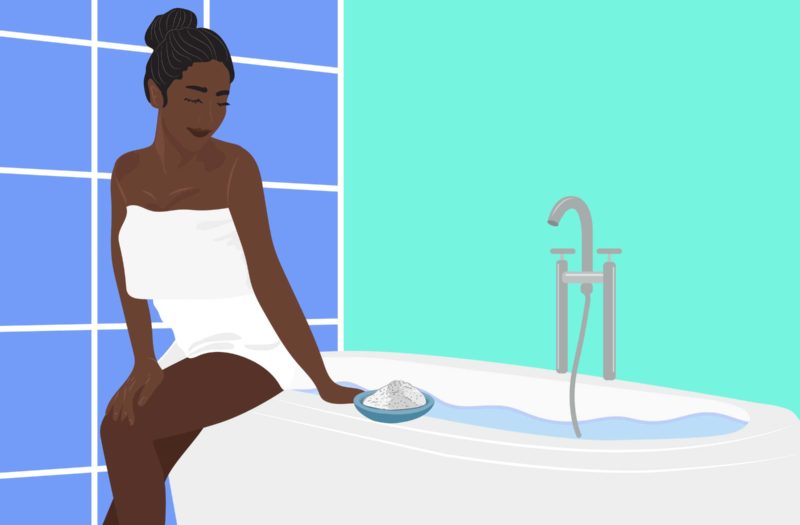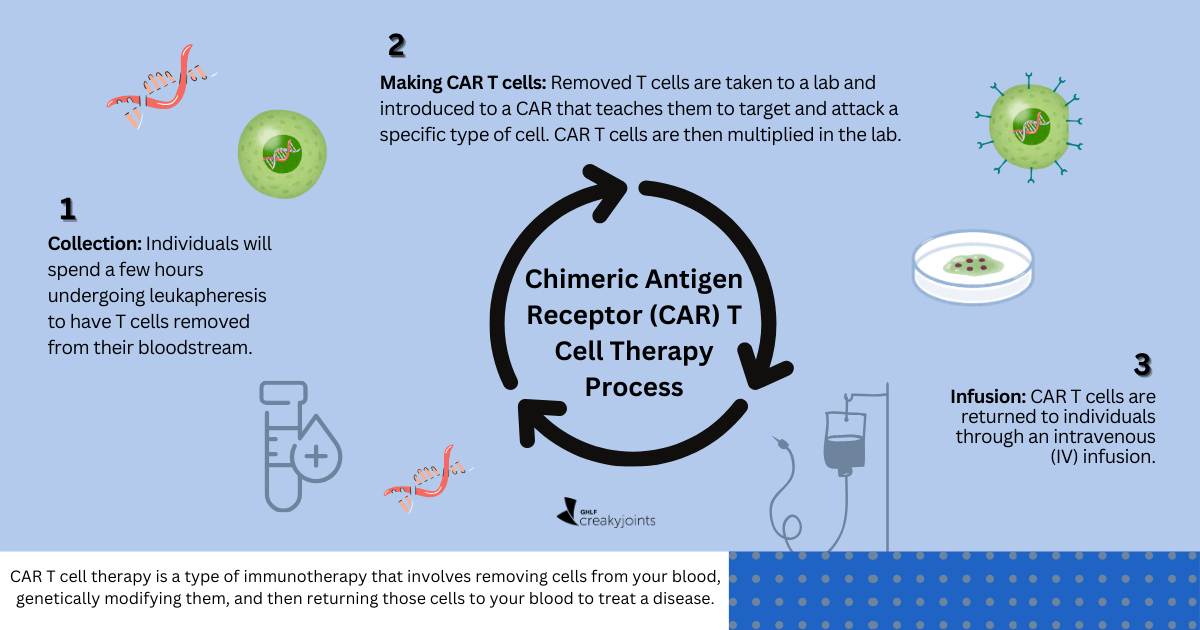Learn more about our FREE COVID-19 Patient Support Program for chronic illness patients and their loved ones.
If you’re living with psoriasis, don’t be surprised if you’re experiencing more flares than usual right now, says Mona Gohara, MD, associate clinical professor dermatology at Yale School of Medicine in New Haven, Connecticut. Stress is one of the most common triggers for psoriasis flares — and living with a chronic illness amid the coronavirus pandemic can certainly make levels of stress and anxiety skyrocket.
Stress and anxiety can also cause many patients with psoriasis to pick at the scaly plaques that are a hallmark of psoriasis, says Dr. Gohara. Yet picking is one of the worst things you can do, as it can cause trauma to the skin. This, in turn, can cause psoriasis plaques to develop in areas where you’ve never had them before, she says. This is known as Koebner’s Phenomenon.
In addition to your regular psoriasis treatment, which can range from topical creams and ultraviolet light therapy to biologics (such as adalimumab [Humira], etanercept [Enbrel], ustekinumab [Stelara], guselkumab [Tremfya], ixekizumab [Taltz], or secukinumab [Cosentyx]), oral disease-modifying treatment (methotrexate and cyclosporine), and PDE-4 inhibitors (such as apremilast [Otezla]), many patients are looking to add home remedies to their shelter-in-place plan to help control these extra flares.
Home remedies are never a replacement for a prescribed treatment regimen, but can possibly supplement it. Home remedies for psoriasis — especially in the middle of coronavirus quarantine — should be inexpensive, accessible, and effective, so we asked dermatologists for their input about home remedies they would recommend.
But first, a word of caution: Don’t fill up that Amazon cart just yet, warns Dr. Gohara. “Now is not the time to experiment and try something totally new,” she says.
If you’re experiencing more flares, setting up a teledermatology visit should be your first step.
Managing Psoriasis Flares Under Quarantine
Here is a round-up of dermatologist-approved tips for managing psoriasis, as part of your overall treatment regimen, while at home.
Remember: What works for you will likely depend on how serious your psoriasis symptoms are (mild, moderate, or severe) and where they’re located.
Minimize stress
Our experts say that controlling stress should top your at-home health goals for psoriasis. “Find your Zen zone for 20 minutes a day,” says Dr. Gohara.
Whether this means practicing meditation; taking a virtual class for dance, yoga, or tai chi; biking or walking; or baking — “it has to ring true for you,” says Amy Wechsler, MD, who is board-certified in both dermatology and psychiatry and author of the book The Mind-Beauty Connection.
Soak up some sun
If you’re not getting your regular ultraviolet light therapy, a five- to 10-minute midafternoon sun session, three times a week, can do wonders for your mood and skin, says Dr. Gohara. Make sure to cover healthy skin with sunscreen and clothing so only areas affected by psoriasis get exposure to the sun.
Sun exposure can give you a boost of vitamin D, the “sunshine vitamin” your body makes from being exposed to UV light. While having low vitamin D levels won’t cause psoriasis, people with psoriasis do tend to be deficient in vitamin D. A 2011 study in the journal Science Translational Medicine found that vitamin D can help counteract the body’s response to inflammation associated with psoriasis.
Use a non-soap cleanser
A gentle non-soap cleanser is great for washing your hands without over-drying your skin or destroying your skin barrier, says Dr. Gohara. Her family-favorite is Dove, but your dermatologist knows your psoriasis best and will likely have a suggestion that’s right for you. A non-soap cleanser does not mean your skin will be getting less clean.
According to Sharecare, this is the difference between “regular” soap and a non-soap cleanser: “Regular soap can contain harsh surfactant ingredients that can strip your skin of its natural moisture. Non-soap cleansing products contain synthetic surfactant ingredients, which are milder than regular soap, and can help keep skin healthy and moisturized.”
Soak in a skin-soothing bath
A safer, less potentially traumatic way to remove psoriasis scales than picking at them or using a sponge or loofah to rub them away, is to add a little table salt to your bath and use the gentle grit from the salt, notes Dr. Gohara.
An alternative pantry staple to soak your skin: whole milk, says Dr. Wechsler, which has anti-inflammatory properties in the fat. “It’s an old-time, tried-and-true skin care technique,” she says. “Cleopatra used to bathe in milk.”
Invest in a humidifier
People with psoriasis can keep their skin moist and reduce flares by using a good home humidifier, says Dr. Gohara. Before making an online purchase, consider the size of your bedroom, tank capacity, noise level, and ease of use.
Use the right shampoo
If you have scalp psoriasis, the most effective over-the-counter shampoos contain coal tar (which helps suppress inflammation on the scalp) or salicylic acid (which exfoliates the scalp). Try Neutrogena T-Gel, DHS-Tar, Neutrogena T-Sal, or DHA-Sal. Read more here about managing scalp psoriasis flaking.
Pick a thick moisturizer
To prevent a psoriasis flare, you want to moisturize with something that is thick and reparative and has anti-inflammatory properties. Dr. Gohar likes Eau Thermale Avene Cicalfate Restorative Skin Cream.
Seek guidance on herbs and supplements
Numerous herbs and supplements have been touted for ant-inflammatory properties that purport to help the immune system and fight inflammation — yet both Dr. Gohara and Dr. Wechsler say there isn’t enough research yet to know for sure. Be sure to talk with your dermatologist — about dosage, drug interactions, and side effects – before trying the following popular herbs and supplements that are commonly touted for psoriasis:
Fish oil or omega-3 supplements: According to a 2014 meta-analysis published in the Journal of the American Academy of Dermatology, there is “moderate evidence” that fish oils might benefit people with psoriasis.
Probiotics: A small study of 26 patients with psoriasis showed that a specific type of probiotic called Bifidobacterium infantis 35624 may help regulate inflammatory responses in the body. Beyond supplements, probiotics are found in yogurt and fermented foods.
Tumeric: This centuries-old spice is touted for its anti-inflammatory and antioxidant properties and can be found in curries as well as supplement form. Studies have found that turmeric alters TNF cytokine expression, which for some, can help minimize psoriasis flares.
Mahonia aquifolium (Oregon grape): Also known as barberry, this flowering plant native to North America has been studied in the treatment of mild to moderate plaque psoriasis.
Prioritize sleep
“The most important thing during periods of stress is to sleep. Every organ, including our skin, heals in our sleep,” says Wechsler. “If you’re getting less than 7 to 8 hours of sleep per night, it’s going to be much harder to heal a psoriasis flare and the flare can be worse.”
In addition to practicing good sleep hygiene, including sticking to a consistent wake-sleep schedule, Dr. Wechsler tells her patients to limit media consumption. “It’s not healthy to watch the news 24/7,” she says. “There should be nothing agitating or stressful coming to your brain through your TV, phone, or computer for at least two hours before you try to go to sleep.” Read more here about a psychologist’s advice on “media fasting.”
Get moving
Being quarantined at home can make it more challenging to get enough physical activity. In addition, people who are suddenly working from home may be sitting more — and psoriasis can come out in those pressure points, says Dr. Gohara.
It’s important to move every day, ideally for at least 30 minutes. You can break up activities into small chunks to give yourself mini breaks throughout the day. Go for a walk, take a bike ride, do a yoga routine, pace your home during a work call. By taking control of your physical and mental health, you can better control your psoriasis during the coronavirus pandemic.
Get Free Coronavirus Support for Psoriasis Patients
Join the Global Healthy Living Foundation’s free COVID-19 Support Program for chronic illness patients and their families. We will be providing updated information, community support, and other resources tailored specifically to your health and safety. Join now.
Want to learn more?
Listen to this episode of Getting Clear on Psoriasis, from the GHLF Podcast Network.
Dombrowski Y, et al. Cytosolic DNA Triggers Inflammasome Activation in Keratinocytes in Psoriatic Lesions. Science Translational Medicine. May 2011. http://dx.doi.org/10.1126/scitranslmed.3002001.
Groeger D, et al. Bifidobacterium infantis 35624 modulates host inflammatory processes beyond the gut. Gut Microbes. Volume 4 2013. doi: http://dx.doi.org/10.4161/gmic.25487.
Gulliver WP, et al. A Report on Three Recent Clinical Trials Using Mahonia aquifolium 10% Topical Cream and a Review of the Worldwide Clinical Experience With Mahonia aquifolium for the Treatment of Plaque Psoriasis. American Journal of Therapeutics. September-October 2005. http://dx.doi.org/10.1097/01.mjt.0000174350.82270.da.
Interview with Amy Wechsler, MD, a board-certified in both dermatology and psychiatry in New York City
Interview with Mona Gohara, MD, associate clinical professor dermatology at Yale School of Medicine
Heng MCY, et al. Results of Combining Phosphorylase Kinase Inhibition with Removal of Precipitating Factors in Large Cohort of Psoriatic Patients: A Proof of Concept Study. Scientific Research. September 2011. doi: http://dx.doi.org/10.4236/jcdsa.2011.13013.
Millsop JW, et al. Diet and psoriasis, part III: Role of nutritional supplements. Journal of the American Academy of Dermatology. September 2014. doi: http://dx.doi.org/10.1016/j.jaad.2014.03.016.
Vitamins and Minerals. National Psoriasis Foundation. https://www.psoriasis.org/treating-psoriasis/complementary-and-alternative/diet-and-nutrition/vitamins-and-supplements.
What’s the Main Difference Between Soap and a Non-Soap Cleanser? Sharecare. https://www.sharecare.com/health/skin-cleansing-soaps/difference-between-soap-non-soap-cleanser.






